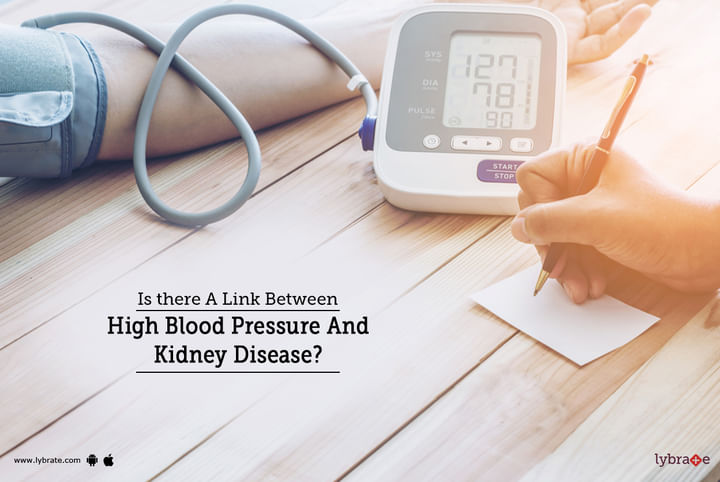Is there A Link Between High Blood Pressure And Kidney Disease?
High blood pressure is one of the leading causes of kidney failure. High blood pressure can be a symptom of kidney disease too. When your kidneys are damaged due to high blood pressure, it stops functioning properly – and its major functions include purifying the blood, forming urine, and balancing body fluids.
Understanding how does high blood pressure leads to kidney disease
The kidneys are small, bean-shaped organs, composed of minute blood vessels, known as glomeruli, which purify your blood. When you have high blood pressure, your heart works very hard to pump blood through the blood vessels. This can scar the blood vessels and eventually inflict damage upon your kidneys.
Once your kidneys start malfunctioning due to high blood pressure, you may experience the following symptoms –
-
Appetite loss
-
Nausea and vomiting
-
Drowsiness or fatigue
-
Sleep problems
-
Trouble concentrating
-
Dry skin
-
Oedema – swelling in the ankles, legs, or feet
-
Headaches
-
Decreased or increased urination
-
Numbness and itching
-
Muscle cramps
-
Chest pain
-
Shortness of breath
Look out for these symptoms if you have high blood pressure. The best way to know if your blood pressure has affected the kidneys is to get yourself diagnosed.
Ways to Prevent Kidney Damage from High Blood Pressure
The best way to prevent or slow the prognosis of kidney disease is to take adequate measures to bring down your blood pressure levels. These include certain lifestyle changes and controlling underlying health conditions.
Here is what you should do –
-
Follow a healthy diet – A DASH eating plan works best for high blood pressure patients – it is low in cholesterol and fat, and rich in fibre and proteins. The diet focuses on foods that are essentially meant to lower blood pressure. Include vegetables, fruits, whole grains, lean proteins, nuts, low-fat dairy products in your daily diet. These are good for your heart health. At the same time, reduce the intake of red meat, added sugar, sweets, and salt.
-
Maintain a healthy body weight – Obese or overweight people are at risk of high blood pressure. Therefore, you should aim to reduce your weight by 7-10%. A Body Mass Index of 25 or below should be your goal to keep blood pressure in check.
-
Engage in physical activities – Daily physical activity helps reduce blood pressure and lowers your chances of underlying health issues, including kidney ailments. Engage in moderate activities like jogging, brisk walking, swimming, cycling, or running.
-
Quit smoking and reduce alcohol intake – Smoking can destroy your blood vessels and increase the likelihood of kidney damage resulting from high blood pressure. Similarly, excessive alcohol consumption elevates blood pressure levels. Therefore, quit smoking and limit alcohol consumption right away.
-
Manage stress – Stress is a major cause of high blood pressure. Learn the ways to manage stress for improving physical and emotional health. Practice meditation or yoga to calm your mind.
High blood pressure does not affect the kidneys in a day or two. It takes years for uncontrolled, elevated blood pressure to damage the kidneys. If you take these measures early in life along with your regular medications, you might be able to prevent kidney diseases from high blood pressure.


+1.svg)
